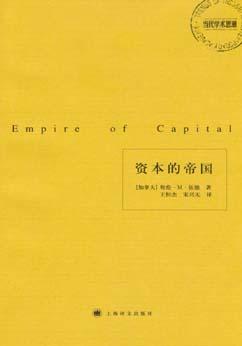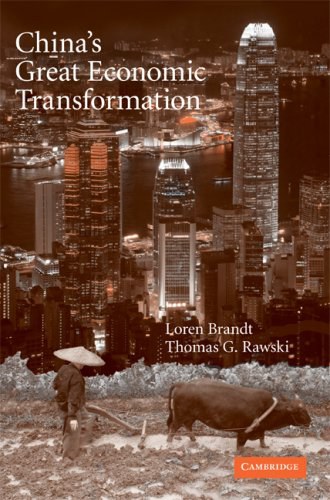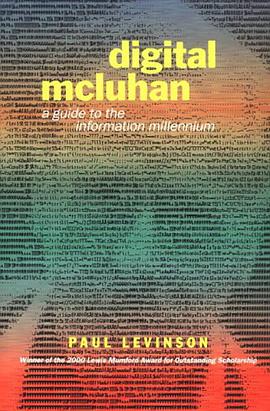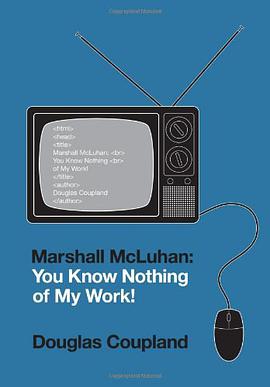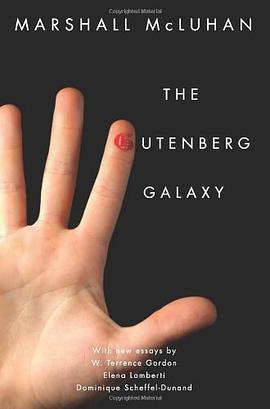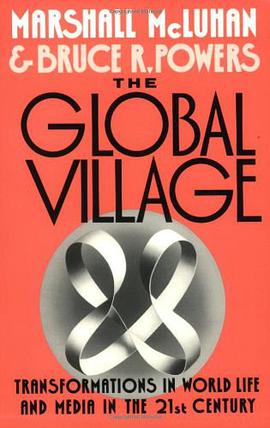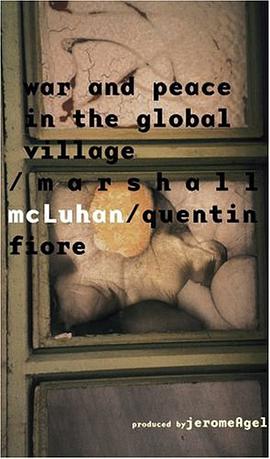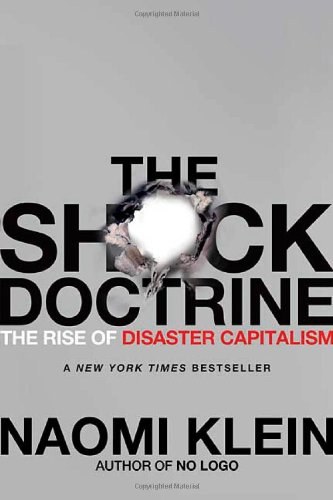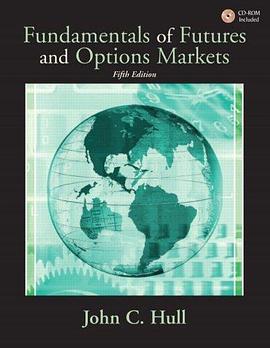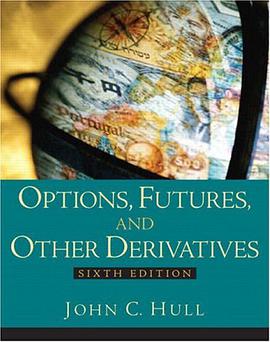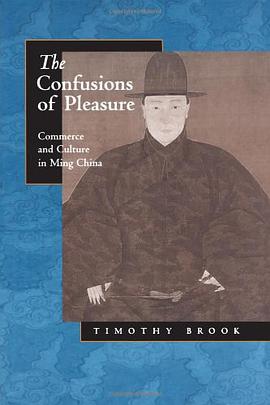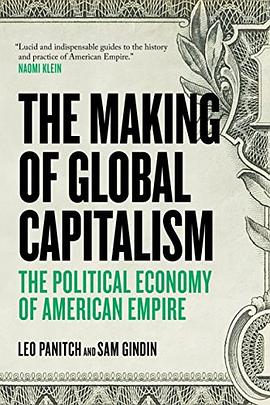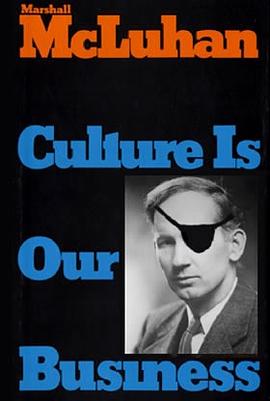加拿大
The Meaning and End of Religion Goodreads 豆瓣
作者:
Wilfred Cantwell Smith
Fortress Press
1991
- 1
Wilfred Cantwell Smith, maintained in this vastly important work that Westerners have misperceived religious life by making "religion" into one thing. He shows the inadequacy of "religion" to capture the living, endlessly variable ways and traditions in which religious faith presents itself in the world.
China's Great Economic Transformation 豆瓣
作者:
Loren Brandt
/
Thomas G. Rawski eds.
Cambridge University Press
2008
- 4
This landmark 2008 study provides an integrated analysis of China's unexpected economic boom of the past three decades. The authors combine deep China expertise with broad disciplinary knowledge to explain China's remarkable combination of high-speed growth and deeply flawed institutions. Their work exposes the mechanisms underpinning the origin and expansion of China's great boom. Penetrating studies track the rise of Chinese capabilities in manufacturing and in research and development. The editors probe both achievements and weaknesses across many sectors, including China's fiscal, legal, and financial institutions. The book shows how an intricate minuet combining China's political system with sectorial development, globalization, resource transfers across geographic and economic space, and partial system reform delivered an astonishing and unprecedented growth spurt.
Digital McLuhan 豆瓣
作者:
Paul Levinson
Routledge
2001
- 4
Marshall McLuhan died on the last day of 1980, on the doorstep of the personal computer revolution. Yet McLuhan's ideas anticipated a world of media in motion, and its impact on our lives on the dawn of the new millennium. Paul Levinson examines why McLuhan's theories about media are more important to us today than when they were first written, and why the Wired generation is now turning to McLuhan's work to understand the global village in the digital age.
Marshall McLuhan 豆瓣
作者:
Douglas Coupland
Atlas
2010
- 11
Marshall McLuhan, the celebrated social theorist who defined the culture of the 1960s, is remembered now primarily for the aphoristic slogan he coined to explain the emerging new world of global communication: “The medium is the message.” Half a century later, McLuhan’s predictions about the end of print culture and the rise of “electronic inter-dependence” have become a reality—in a sense, the reality—of our time.
Douglas Coupland, whose iconic novel Generation X was a “McLuhanesque” account of our culture in fictional form, has written a compact biography of the cultural critic that interprets the life and work of his subject from inside. A fellow Canadian, a master of creative sociology, a writer who supplied a defining term, Coupland is the ideal chronicler of the uncanny prophet whose vision of the global village—now known as the Internet—has come to pass in the 21st century.
Douglas Coupland, whose iconic novel Generation X was a “McLuhanesque” account of our culture in fictional form, has written a compact biography of the cultural critic that interprets the life and work of his subject from inside. A fellow Canadian, a master of creative sociology, a writer who supplied a defining term, Coupland is the ideal chronicler of the uncanny prophet whose vision of the global village—now known as the Internet—has come to pass in the 21st century.
Understanding Media 豆瓣 Eggplant.place Goodreads
Understanding Media: The Extensions of Man
作者:
Marshall McLuhan
/
Lewis H. Lapham
The MIT Press
1994
- 10
其它标题:
Understanding Media: The Extensions of Man
with a new introduction by Lewis H. Lapham This reissue of Understanding Media marks the thirtieth anniversary (1964-1994) of Marshall McLuhan's classic expose on the state of the then emerging phenomenon of mass media. Terms and phrases such as "the global village" and "the medium is the message" are now part of the lexicon, and McLuhan's theories continue to challenge our sensibilities and our assumptions about how and what we communicate.There has been a notable resurgence of interest in McLuhan's work in the last few years, fueled by the recent and continuing conjunctions between the cable companies and the regional phone companies, the appearance of magazines such as WiRed, and the development of new media models and information ecologies, many of which were spawned from MIT's Media Lab. In effect, media now begs to be redefined. In a new introduction to this edition of Understanding Media, Harper's editor Lewis Lapham reevaluates McLuhan's work in the light of the technological as well as the political and social changes that have occurred in the last part of this century.
The Gutenberg Galaxy 豆瓣
作者:
Marshall McLuhan
University of Toronto Press, Scholarly Publishing Division
2011
- 7
The Gutenberg Galaxy catapulted Marshall McLuhan to fame as a media theorist and, in time, a new media prognosticator. Fifty years after its initial publication, this landmark text is more significant than ever before. Readers will be amazed by McLuhan's prescience, unmatched by anyone since, predicting as he did the dramatic technological innovations that have fundamentally changed how we communicate. The Gutenberg Galaxy foresaw the networked, compressed 'global village' that would emerge in the late-twentieth and twenty-first centuries - despite having been written when black-and-white television was ubiquitous. This new edition of The Gutenberg Galaxy celebrates both the centennial of McLuhan's birth and the fifty-year anniversary of the book's publication. A new interior design updates The Gutenberg Galaxy for twenty-first-century readers, while honouring the innovative, avant-garde spirit of the original. This edition also includes new introductory essays that illuminate McLuhan's lasting effect on a variety of scholarly fields and popular culture. A must-read for those who inhabit today's global village, The Gutenberg Galaxy is an indispensable road map for our evolving communication landscape.
The Global Village: Transformations in World Life and Media in the 21st Century Goodreads 豆瓣
作者:
Marshall McLuhan
/
Bruce R. Powers
Oxford University Press, USA
1992
- 9
其它标题:
The Global Village
Extending the visionary early work of the late Marshall McLuhan, The Global Village , one of his last collaborative efforts, applies that vision to today's worldwide, integrated electronic network.
When McLuhan's groundbreaking Understanding Media was published in 1964, the media as we know it today did not exist. But McLuhan's argument, that the technological extensions of human consciousness were racing ahead of our ability to understand their consequences, has never been more compelling. And if the medium is the message, as McLuhan maintained, then the message is becoming almost impossible to decipher.
In The Global Village , McLuhan and co-author Bruce R. Powers propose a detailed conceptual framework in terms of which the technological advances of the past two decades may be understood. At the heart of their theory is the argument that today's users of technology are caught between two very different ways of perceiving the world. On the one hand there is what they refer to as Visual Space--the linear, quantitative mode of perception that is characteristic of the Western world; on the other hand there is Acoustic Space--the holistic, qualitative reasoning of the East. The medium of print, the authors argue, fosters and preserves the perception of Visual Space; but, like television, the technologies of the data base, the communications satellite, and the global media network are pushing their users towards the more dynamic, "many-centered" orientation of Acoustic Space.
The authors warn, however, that this movement towards Acoustic Space may not go smoothly. Indeed, McLuhan and Powers argue that with the advent of the global village--the result of worldwide communications--these two worldviews "are slamming into each other at the speed of light," asserting that "the key to peace is to understand both these systems simultaneously."
Employing McLuhan's concept of the Tetrad--a device for predicting the changes wrought by new technologies--the authors analyze this collision of viewpoints. Taking no sides, they seek to do today what McLuhan did so successfully twenty-five years ago--to look around the corner of the coming world, and to help us all be prepared for what we will find there.
When McLuhan's groundbreaking Understanding Media was published in 1964, the media as we know it today did not exist. But McLuhan's argument, that the technological extensions of human consciousness were racing ahead of our ability to understand their consequences, has never been more compelling. And if the medium is the message, as McLuhan maintained, then the message is becoming almost impossible to decipher.
In The Global Village , McLuhan and co-author Bruce R. Powers propose a detailed conceptual framework in terms of which the technological advances of the past two decades may be understood. At the heart of their theory is the argument that today's users of technology are caught between two very different ways of perceiving the world. On the one hand there is what they refer to as Visual Space--the linear, quantitative mode of perception that is characteristic of the Western world; on the other hand there is Acoustic Space--the holistic, qualitative reasoning of the East. The medium of print, the authors argue, fosters and preserves the perception of Visual Space; but, like television, the technologies of the data base, the communications satellite, and the global media network are pushing their users towards the more dynamic, "many-centered" orientation of Acoustic Space.
The authors warn, however, that this movement towards Acoustic Space may not go smoothly. Indeed, McLuhan and Powers argue that with the advent of the global village--the result of worldwide communications--these two worldviews "are slamming into each other at the speed of light," asserting that "the key to peace is to understand both these systems simultaneously."
Employing McLuhan's concept of the Tetrad--a device for predicting the changes wrought by new technologies--the authors analyze this collision of viewpoints. Taking no sides, they seek to do today what McLuhan did so successfully twenty-five years ago--to look around the corner of the coming world, and to help us all be prepared for what we will find there.
War and Peace in the Global Village 豆瓣 Goodreads
作者:
Marshall McLuhan
/
Quentin Fiore
Gingko Pr Inc
2001
- 6
Initiallly published in 1968, this text is regarded as a revolutionary work for its depiction of a planet made ever smaller by new technologies. A mosaic of pointed insights and probes, this text predicts a world without centres or boundaries. It illustrates how the electronic information travelling around the globe at the speed of light has eroded the rules of the linnear, literate world. No longer can there be fixed positions or goals.
The Shock Doctrine 豆瓣 Goodreads
作者:
Naomi Klein
Metropolitan Books
2007
- 9
The bestselling author of No Logo shows how the global free market has exploited crises and shock for three decades, from Chile to Iraq
In her groundbreaking reporting over the past few years, Naomi Klein introduced the term disaster capitalism. Whether covering Baghdad after the U.S. occupation, Sri Lanka in the wake of the tsunami, or New Orleans post-Katrina, she witnessed something remarkably similar. People still reeling from catastrophe were being hit again, this time with economic shock treatment, losing their land and homes to rapid-fire corporate makeovers.
The Shock Doctrine retells the story of the most dominant ideology of our time, Milton Friedman s free market economic revolution. In contrast to the popular myth of this movement s peaceful global victory, Klein shows how it has exploited moments of shock and extreme violence in order to implement its economic policies in so many parts of the world from Latin America and Eastern Europe to South Africa, Russia, and Iraq.
At the core of disaster capitalism is the use of cataclysmic events to advance radical privatization combined with the privatization of the disaster response itself. Klein argues that by capitalizing on crises, created by nature or war, the disaster capitalism complex now exists as a booming new economy, and is the violent culmination of a radical economic project that has been incubating for fifty years.
From Publishers Weekly
The neo-liberal economic policies—privatization, free trade, slashed social spending—that the Chicago School and the economist Milton Friedman have foisted on the world are catastrophic in two senses, argues this vigorous polemic. Because their results are disastrous—depressions, mass poverty, private corporations looting public wealth, by the author's accounting—their means must be cataclysmic, dependent on political upheavals and natural disasters as coercive pretexts for free-market reforms the public would normally reject. Journalist Klein (No Logo) chronicles decades of such disasters, including the Chicago School makeovers launched by South American coups; the corrupt sale of Russia's state economy to oligarchs following the collapse of the Soviet Union; the privatization of New Orleans's public schools after Katrina; and the seizure of wrecked fishing villages by resort developers after the Asian tsunami. Klein's economic and political analyses are not always meticulous. Likening free-market shock therapies to electroshock torture, she conflates every misdeed of right-wing dictatorships with their economic programs and paints a too simplistic picture of the Iraq conflict as a struggle over American-imposed neo-liberalism. Still, much of her critique hits home, as she demonstrates how free-market ideologues welcome, and provoke, the collapse of other people's economies. The result is a powerful populist indictment of economic orthodoxy.
In her groundbreaking reporting over the past few years, Naomi Klein introduced the term disaster capitalism. Whether covering Baghdad after the U.S. occupation, Sri Lanka in the wake of the tsunami, or New Orleans post-Katrina, she witnessed something remarkably similar. People still reeling from catastrophe were being hit again, this time with economic shock treatment, losing their land and homes to rapid-fire corporate makeovers.
The Shock Doctrine retells the story of the most dominant ideology of our time, Milton Friedman s free market economic revolution. In contrast to the popular myth of this movement s peaceful global victory, Klein shows how it has exploited moments of shock and extreme violence in order to implement its economic policies in so many parts of the world from Latin America and Eastern Europe to South Africa, Russia, and Iraq.
At the core of disaster capitalism is the use of cataclysmic events to advance radical privatization combined with the privatization of the disaster response itself. Klein argues that by capitalizing on crises, created by nature or war, the disaster capitalism complex now exists as a booming new economy, and is the violent culmination of a radical economic project that has been incubating for fifty years.
From Publishers Weekly
The neo-liberal economic policies—privatization, free trade, slashed social spending—that the Chicago School and the economist Milton Friedman have foisted on the world are catastrophic in two senses, argues this vigorous polemic. Because their results are disastrous—depressions, mass poverty, private corporations looting public wealth, by the author's accounting—their means must be cataclysmic, dependent on political upheavals and natural disasters as coercive pretexts for free-market reforms the public would normally reject. Journalist Klein (No Logo) chronicles decades of such disasters, including the Chicago School makeovers launched by South American coups; the corrupt sale of Russia's state economy to oligarchs following the collapse of the Soviet Union; the privatization of New Orleans's public schools after Katrina; and the seizure of wrecked fishing villages by resort developers after the Asian tsunami. Klein's economic and political analyses are not always meticulous. Likening free-market shock therapies to electroshock torture, she conflates every misdeed of right-wing dictatorships with their economic programs and paints a too simplistic picture of the Iraq conflict as a struggle over American-imposed neo-liberalism. Still, much of her critique hits home, as she demonstrates how free-market ideologues welcome, and provoke, the collapse of other people's economies. The result is a powerful populist indictment of economic orthodoxy.
The English Patient 豆瓣
作者:
Michael Ondaatje
Bloomsbury Publishing PLC
2004
- 8
The final curtain is closing on the Second World War, and Hana, a nurse, stays behind in an abandoned Italian villa to tend to her only remaining patient. Rescued by Bedouins from a burning plane, he is English, anonymous, damaged beyond recognition and haunted by his memories of passion and betrayal. The only clue Hana has to his past is the one thing he clung on to through the fire? a copy of The Histories by Herodotus, covered with hand-written notes describing a painful and ultimately tragic love affair.
Fundamentals of Futures and Options Markets (5th Edition) (Prentice Hall Finance) 豆瓣
作者:
John C. Hull
Prentice Hall
2004
- 7
Updated and revised to reflect the most current information, this introduction to futures and options markets is ideal for those with a limited background in mathematics. Based on Hull's Options, Futures and Other Derivatives, one of the best-selling books on Wall Street, this book presents an accessible overview of the topic without the use of calculus. Packed with numerical samples and accounts of real-life situations, the Fifth Edition effectively guides readers through the material while providing them with a host of tangible examples. For professionals with a career in futures and options markets, financial engineering and/or risk management.
Options, Futures and Other Derivatives (6th Edition) 豆瓣
作者:
John C. Hull
Prentice Hall
2005
- 10
Designed to bridge the gap between theory and practice, this successful book is regarded as "the bible" in trading rooms throughout the world. The books covers both derivatives markets and risk management, including credit risk and credit derivatives; forward, futures, and swaps; insurance, weather, and energy derivatives; and more. For options traders, options analysts, risk managers, swaps traders, financial engineers, and corporate treasurers.
</P>
</P>
The Confusions of Pleasure 豆瓣
作者:
Timothy Brook
University of California Press
1999
- 9
The Ming dynasty was the last great Chinese dynasty before the Manchu conquest in 1644. During that time, China, not Europe, was the center of the world: the European voyages of exploration were searching not just for new lands but also for new trade routes to the Far East. In this book, Timothy Brook eloquently narrates the changing landscape of life over the three centuries of the Ming (1368-1644), when China was transformed from a closely administered agrarian realm into a place of commercial profits and intense competition for status.
The Confusions of Pleasure marks a significant departure from the conventional ways in which Chinese history has been written. Rather than recounting the Ming dynasty in a series of political events and philosophical achievements, it narrates this longue durée in terms of the habits and strains of everyday life. Peppered with stories of real people and their negotiations of a rapidly changing world, this book provides a new way of seeing the Ming dynasty that not only contributes to the scholarly understanding of the period but also provides an entertaining and accessible introduction to Chinese history for anyone.
The Confusions of Pleasure marks a significant departure from the conventional ways in which Chinese history has been written. Rather than recounting the Ming dynasty in a series of political events and philosophical achievements, it narrates this longue durée in terms of the habits and strains of everyday life. Peppered with stories of real people and their negotiations of a rapidly changing world, this book provides a new way of seeing the Ming dynasty that not only contributes to the scholarly understanding of the period but also provides an entertaining and accessible introduction to Chinese history for anyone.
Production, Power, and World Order 豆瓣
作者:
Robert W. Cox
Columbia Univ Press
1987
The Making of Global Capitalism 豆瓣
作者:
Leo Panitch
/
Sam Gindin
Verso Books
2013
- 10
The all-encompassing embrace of world capitalism at the beginning of the twenty-first century was generally attributed to the superiority of competitive markets. Globalization had appeared to be the natural outcome of this unstoppable process. But today, with global markets roiling and increasingly reliant on state intervention to stay afloat, it has become clear that markets and states aren't straightforwardly opposing forces.
In this groundbreaking work, Leo Panitch and Sam Gindin demonstrate the intimate relationship between modern capitalism and the American state. "The Making of Global Capitalism" identifies the centrality of the social conflicts that occur within states rather than between them. These emerging fault lines hold out the possibility of new political movements that might transcend global markets.
In this groundbreaking work, Leo Panitch and Sam Gindin demonstrate the intimate relationship between modern capitalism and the American state. "The Making of Global Capitalism" identifies the centrality of the social conflicts that occur within states rather than between them. These emerging fault lines hold out the possibility of new political movements that might transcend global markets.
Man and the Future of Organization Volume 4 豆瓣
Sch. of Bus. Admin., Georgia State Univ.
1975
Culture Is Our Business 豆瓣
作者:
Herbert Marshall. McLuhan
McGraw-Hill
1970
- 1
A Compendious History of the Northern Part of the Province of New Brunswick, and of the District of Gaspe, in Lower Canada. 豆瓣
作者:
Robert Cooney
British Library, Historical Print Editions
2011
- 3

